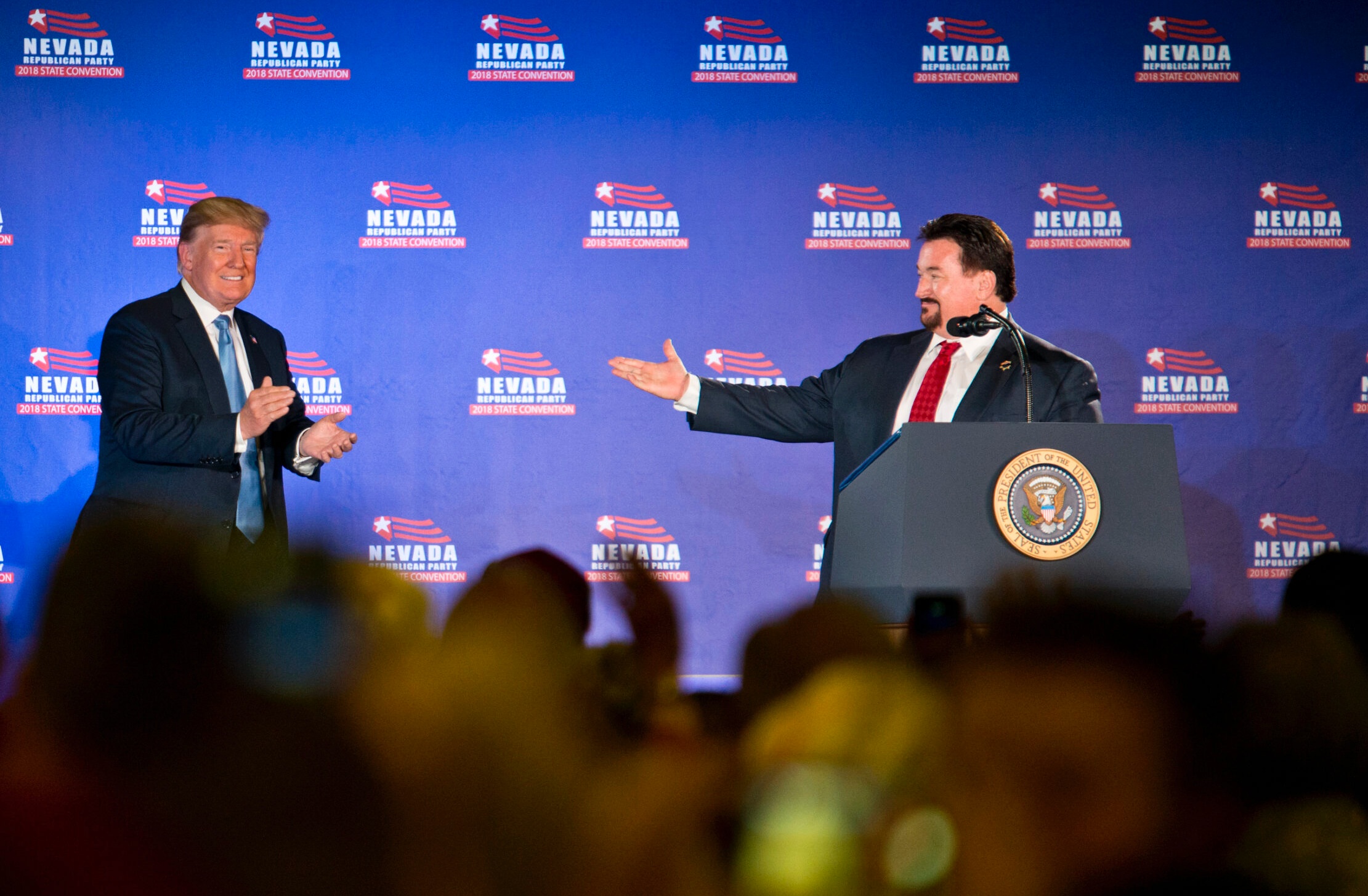Four years ago on Saturday, a group of six Nevada Republicans held a symbolic ceremony in the state capital and “cast” electoral votes for then-President Donald Trump.
Trump lost the Silver State by more than 33,000 votes to Joe Biden in 2020, but his allies in Nevada and other swing states hatched a plan to try to overturn the election results in part by identifying themselves as their states’ true electors while filing lawsuits claiming massive voter fraud had occurred.
Since then, the so-called “fake electors” in Nevada have faced myriad legal and governmental scrutiny, including congressional subpoenas, a grand jury indictment and charges filed in two separate jurisdictions.
But four years later, the fake electors have not faced any significant repercussions. They have avoided convictions, and some of them remain key Republican power players in Nevada, including state party Chair Michael McDonald, Clark County GOP Chair Jesse Law and Republican National Committeeman Jim DeGraffenreid.
However, their legal fight is far from over. The initial charges against them were dismissed in Clark County District Court this year, but that decision is under appeal before the Nevada Supreme Court, and new forgery charges were filed this week in Carson City, days before the statute of limitations expired on Saturday.
The yearslong saga has stretched from the end of Trump’s first term into the beginning of his second term starting next month. Trump has vowed to protect his supporters who engaged in the effort to overturn the results of the 2020 presidential election — most recently pledging to pardon rioters from the Jan. 6 insurrection within hours of taking office.
However, because Nevada’s fake electors are facing state-level criminal charges, they are not eligible for a presidential pardon.
See the timeline below on how the story has unfolded.

